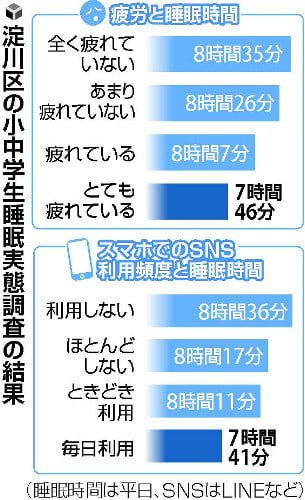「心の危機に宗教は役立つのか?」
という疑問を東日本大震災以来ずっと抱き続けてきました。
しかしこの分野の科学的解析はあまり進んでいないようです。
最近の報告を紹介します;
■ 宗教的な体験は脳の報酬系を刺激する
(HealthDay News:2016/12/15:CareNet)
宗教的な体験は、セックスやギャンブル、薬物、音楽と同じように、脳の報酬系を刺激する可能性があることが、米ユタ大学のMichael Ferguson氏らの小規模研究で示唆された。
同氏らは、若年成人の敬虔なモルモン教徒19人を対象として、スピリチュアルな感覚を高める活動をしているときにf-MRI(機能的磁気共鳴画像法)による脳検査を実施した。その結果、被験者が救世主について、永遠に家族とともにいることについて、天国での恩恵について考えるよう指示されたとき、脳と身体に物質的な反応がみられたという。
ほぼ全ての被験者が、実験中に穏やかな気持ちになり、暖かな身体感覚を得たと回答し、多くの被験者は実験終了時までに涙ぐんでいた。f-MRI検査の結果、スピリチュアルな感覚は、脳の報酬回路を活性化するとともに、評価・判断・道徳的思考に関するタスクを処理する脳領域の活動も惹起すると示唆された。
今回の研究では直接的な因果関係は確立できなかったが、「精神的な感覚を得ること」は、集中的な注意力に関連する脳領域の活性も高めるようであったという。
共著者の1人は、「信仰をもつ人が霊や神、あるいは超越的なことを解釈する体験に、脳がどのように関わるのか、解明する研究は始まったばかりである。この数年間の脳機能イメージング技術の発達により、こうしたアプローチが可能となった。宗教的な体験はおそらく、良くも悪くも意思決定に最も影響する面であるため、それに寄与する脳内現象を理解することは本当に重要である」と述べている。
研究結果は、「Social Neuroscience」オンライン版に11月29日掲載された。
<原著論文>
・Ferguson MA, et al. Soc Neurosci. 2016 Nov 29.
Reward, salience, and attentional networks are activated by religious experience in devout Mormons.
Journal Social neuroscience. 2016 Nov 29;1-13.
Author Michael A Ferguson, Jared A Nielsen, Jace B King, Li Dai, Danielle M Giangrasso, Rachel Holman, Julie R Korenberg, Jeffrey S Anderson
Affiliation
Abstract
High-level cognitive and emotional experience arises from brain activity, but the specific brain substrates for religious and spiritual euphoria remain unclear. We demonstrate using functional magnetic resonance imaging scans in 19 devout Mormons that a recognizable feeling central to their devotional practice was reproducibly associated with activation in nucleus accumbens, ventromedial prefrontal cortex, and frontal attentional regions. Nucleus accumbens activation preceded peak spiritual feelings by 1-3 s and was replicated in four separate tasks. Attentional activation in the anterior cingulate and frontal eye fields was greater in the right hemisphere. The association of abstract ideas and brain reward circuitry may interact with frontal attentional and emotive salience processing, suggesting a mechanism whereby doctrinal concepts may come to be intrinsically rewarding and motivate behavior in religious individuals.
という疑問を東日本大震災以来ずっと抱き続けてきました。
しかしこの分野の科学的解析はあまり進んでいないようです。
最近の報告を紹介します;
■ 宗教的な体験は脳の報酬系を刺激する
(HealthDay News:2016/12/15:CareNet)
宗教的な体験は、セックスやギャンブル、薬物、音楽と同じように、脳の報酬系を刺激する可能性があることが、米ユタ大学のMichael Ferguson氏らの小規模研究で示唆された。
同氏らは、若年成人の敬虔なモルモン教徒19人を対象として、スピリチュアルな感覚を高める活動をしているときにf-MRI(機能的磁気共鳴画像法)による脳検査を実施した。その結果、被験者が救世主について、永遠に家族とともにいることについて、天国での恩恵について考えるよう指示されたとき、脳と身体に物質的な反応がみられたという。
ほぼ全ての被験者が、実験中に穏やかな気持ちになり、暖かな身体感覚を得たと回答し、多くの被験者は実験終了時までに涙ぐんでいた。f-MRI検査の結果、スピリチュアルな感覚は、脳の報酬回路を活性化するとともに、評価・判断・道徳的思考に関するタスクを処理する脳領域の活動も惹起すると示唆された。
今回の研究では直接的な因果関係は確立できなかったが、「精神的な感覚を得ること」は、集中的な注意力に関連する脳領域の活性も高めるようであったという。
共著者の1人は、「信仰をもつ人が霊や神、あるいは超越的なことを解釈する体験に、脳がどのように関わるのか、解明する研究は始まったばかりである。この数年間の脳機能イメージング技術の発達により、こうしたアプローチが可能となった。宗教的な体験はおそらく、良くも悪くも意思決定に最も影響する面であるため、それに寄与する脳内現象を理解することは本当に重要である」と述べている。
研究結果は、「Social Neuroscience」オンライン版に11月29日掲載された。
<原著論文>
・Ferguson MA, et al. Soc Neurosci. 2016 Nov 29.
Reward, salience, and attentional networks are activated by religious experience in devout Mormons.
Journal Social neuroscience. 2016 Nov 29;1-13.
Author Michael A Ferguson, Jared A Nielsen, Jace B King, Li Dai, Danielle M Giangrasso, Rachel Holman, Julie R Korenberg, Jeffrey S Anderson
Affiliation
Abstract
High-level cognitive and emotional experience arises from brain activity, but the specific brain substrates for religious and spiritual euphoria remain unclear. We demonstrate using functional magnetic resonance imaging scans in 19 devout Mormons that a recognizable feeling central to their devotional practice was reproducibly associated with activation in nucleus accumbens, ventromedial prefrontal cortex, and frontal attentional regions. Nucleus accumbens activation preceded peak spiritual feelings by 1-3 s and was replicated in four separate tasks. Attentional activation in the anterior cingulate and frontal eye fields was greater in the right hemisphere. The association of abstract ideas and brain reward circuitry may interact with frontal attentional and emotive salience processing, suggesting a mechanism whereby doctrinal concepts may come to be intrinsically rewarding and motivate behavior in religious individuals.










